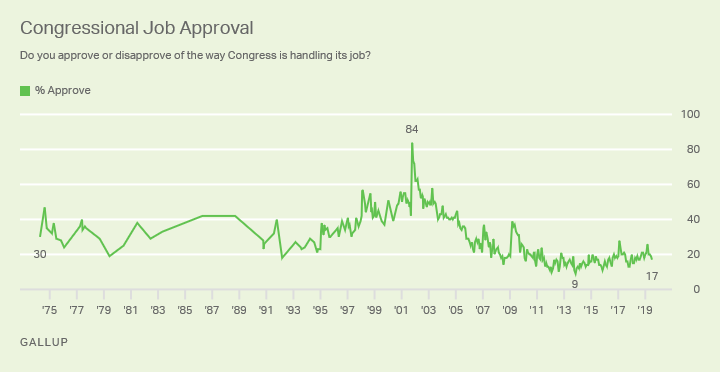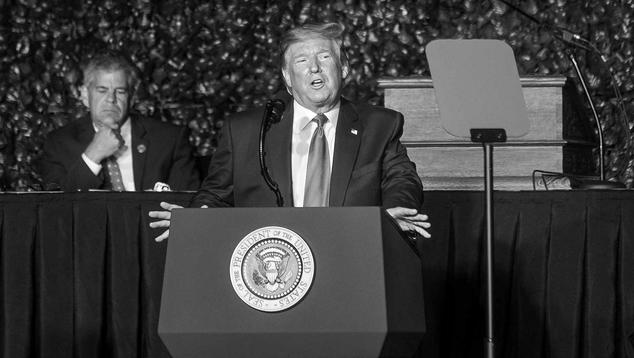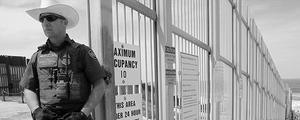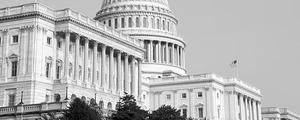This summer, Jamestown, Virginia, celebrates its 400th anniversary as the "first representative legislative assembly in the Western Hemisphere." Americans might not be as excited about the anniversary as organizers of the celebratory events would like.
Representative legislative assemblies are the cornerstone of modern democracy. Classical democracies did not rely on elected representatives to make public policy. The eligible citizens were expected to gather periodically to debate on proposals and make decisions about the public business. These "simple" or "direct" democracies developed a (not entirely fair) reputation for a turbulence that could collapse into anarchy or dictatorship. More prosaically, there was no way to scale up that form of democracy. Such face-to-face deliberation might work for small villages with a restricted number of citizens, but it would not work at all for a populous, far-flung nation.
Early Democratic Traditions From Europe to America
In the 13th and 14th centuries, European city-states began to experiment with a democratic element -- generally an elected representative assembly -- that could make some important decisions and serve as a watchdog over other government institutions. In particular, early elected assemblies tended to represent the interests of taxpayers and were expected to push back against profligate kings with their decadent courts and wasteful foreign adventurism.
When idealists began to imagine a genuinely democratic or republican form of government -- a government without kings or landed aristocrats -- they took as their starting point the democratic part of the existing government, the representative assembly. Institutions like the British House of Commons, which formed nearly three centuries before the founding of Jamestown, embodied "the people" in government, or sometimes the people against "the government" that found form in the king and his ministers.
When the British began to settle in America, starting with the Virginia colony at the beginning of the 17th century and soon followed by the Plymouth colony in Massachusetts Bay and a proliferation of others along the Eastern Seaboard as the century progressed, they took their familiar forms of government and law with them. Moreover, if people were going to be persuaded to voluntarily take the risk of sailing across an ocean and trying to carve out a living in a distant wilderness, they needed some enticements.
In particular, they were promised that they would enjoy the same liberties in the New World that they enjoyed at home, including the liberty to have their interests represented in the government and to have taxes imposed on them only by their own consent through their elected representatives. Unsurprisingly, the colonists fairly quickly decided that they would need to govern their own affairs without a lot of meddling from the distant English government in London. The royal governors who were installed to look out for the king's interests in the colonies were viewed with skepticism and distrust by the local colonists, and the local legislatures were creative in finding ways to hem in and work around the governor. The American colonists loved their representative assemblies, but hated their royal governors.
When the American Revolution arrived, and Tom Paine urged his fellow Americans to throw off the shackles of monarchical government, giving even more power to the elected representative assemblies was the obvious move to make. The first American constitutions created powerful legislatures that were kept on a short leash by frequent elections. The other institutions of government were distinctly subordinate to the people's branch. In the case of the first federal constitution, the Articles of Confederation, there were no other branches of government at all. The Continental Congress was the first and only branch of the federal government. Over a century and a half after the first American-elected legislature was established in Jamestown, elected legislatures were still the gold standard for democratic government. A free government was a government that rested on the foundation stone of an elected representative assembly.
The Long Tradition of American Dissatisfaction With Legislatures
It did not take long after independence for Americans to start to sour on their newly empowered legislatures. The drafting of the U.S. Constitution was, in part, a revolt against the Continental Congress and a government resting entirely on a legislative branch. The various states of the union were coming to the same conclusion and revising their constitutions to weaken their legislatures and strengthen their courts and executives to counterbalance the representative assemblies.
Congress was the most visible representative assembly of all, and it often became the symbol for everything that was wrong with American government. Humorists from Mark Twain to Will Rogers to P.J. O'Rourke have made Congress a punching bag and laughingstock. The members of Congress long ago learned to run against the very institution where they made their living. "People love their congressmen but hate Congress" became a nugget of conventional wisdom among politicians, political strategists and political scientists.
Legislators could make themselves popular by telling their constituents that they were going to Washington to fight all the other scoundrels who roamed the halls of Congress. "I will fight for you" implied that everyone else in Congress was fighting against you. If the voters were dissatisfied with what the government was doing, the blame could be squarely laid on Congress as an institution -- but never on your friendly, neighborhood congressman.
Modern Americans' Dissatisfaction With Congress
We only have the evidence of modern public opinion polling for a relatively short period of American history. Gallup has asked the American people about whether they approve of the job that Congress is doing and how much trust and confidence they have in Congress for a few decades. The Watergate era might not have been the most promising time to start asking people about their feelings about the institutions of American government, but remarkably the early 1970s does not appear to have been a low point for Congress. Congressional approval seemed to briefly improve after the shakeup of the "Gingrich Revolution" and the Republican takeover of the House of Representatives following decades of Democratic majorities, but the good feelings were short-lived. Since the turn of the century, Congress has struggled to make a good impression. Compared to the president and the courts, Congress has not fared well in public opinion.

Congress has suffered from a general public distrust of the major institutions of American society. But Congress, like the presidency, suffers a particular partisan dynamic. Voters may love their congressmen and hate Congress, but they hate Congress a little more when the other party is in control of it. As partisanship has intensified in recent years, it is hard for Congress as an institution to escape our growing tendency to trust only our side of the partisan divide.
There is also intriguing evidence that Americans just do not like to watch the political sausage getting made. It is the nature of representative assemblies that they publicly display all political disagreements and conflicts. Americans would like to think that politics would be simple and agreeable, if we could just "get under the hood," as Ross Perot promised in the 1990s, or "drain the swamp," as Donald Trump promised in 2016. Americans would like to believe that there are common-sense, bipartisan solutions to our political problems just waiting for us to implement, but the workings of Congress repeatedly remind us that politics is not so easy. We tend to resent those reminders.
Democracy might be the worst form of government, except for all the rest, as Winston Churchill once quipped. The reputation of Congress tends to suffer from that conundrum. We may hate Congress, but we sure would miss it if it were not there.




